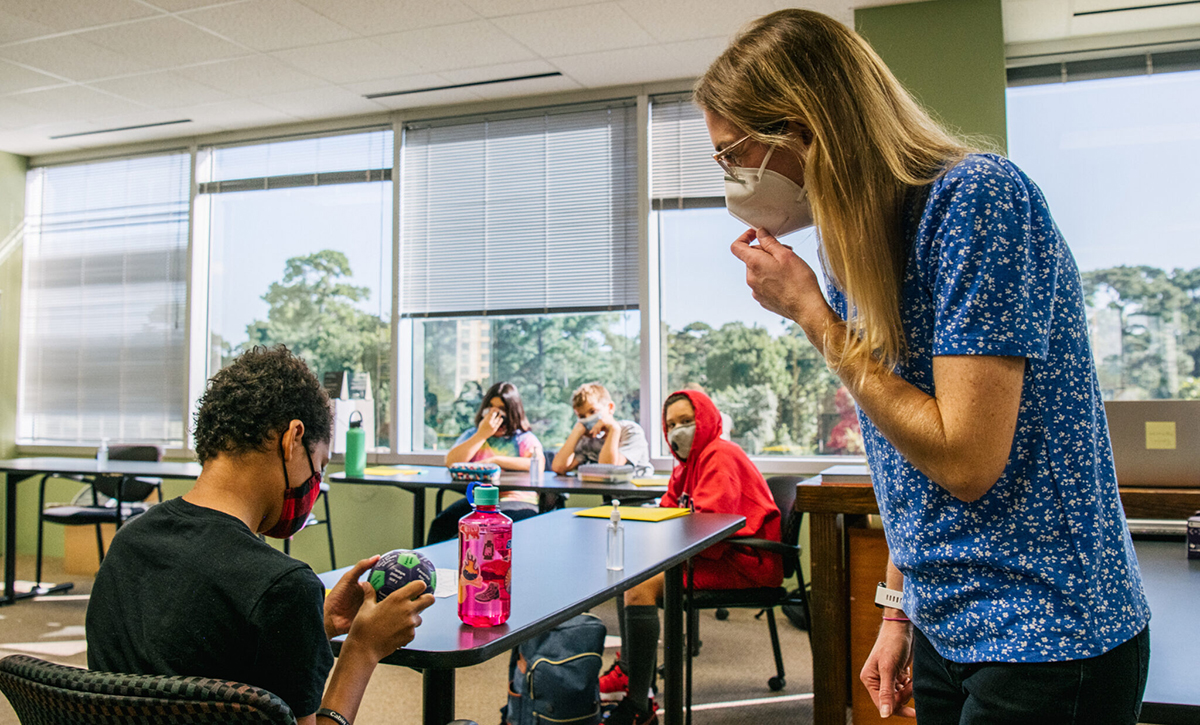Supporting the Whole Child: Study Shows Parents Want More Mental Health Support for Kids
A six-month study of 1,000 K-12 parents in Ohio shows overwhelming support for students to receive support both inside and outside of the classroom

Get stories like these delivered straight to your inbox. Sign up for The 74 Newsletter
A new study shows Ohio parents want to see students receive support inside and outside of the classroom, and they trust teachers to know how to lead their children.
In a study conducted over six months by the Children’s Defense Fund-Ohio in partnership with Baldwin Wallace University’s Community Research Institute, more than 1,000 K-12 parents were asked about everything from school nutrition to social-emotional learning, a concept named the “Whole Child Framework.”
CDF-Ohio said the study supported recommendations that “whole child” approaches to education – including access to resources such as health care and food assistance, along with housing and transportation help – should be implemented in Ohio, as more than 430,000 children live in poverty statewide.
“This means many children in Ohio risk arriving to school without their basic needs met, making it harder for them to learn,” the study stated.
Schools are attempting to extend these services as they can, through behavioral health programs, free meals and community initiatives, hoping to hit basic needs to fight back against educational issues in the state like chronic absenteeism.
Findings in the study showed 46% of parents said their child ate a free lunch at school five days a week, and 87% of parents said those meals should be provided for free, “regardless of the student’s ability to pay.”
Overwhelmingly, parents agreed that school districts and communities should be working together to provide “educational programs that go beyond basic academics and provide customized, relevant support for the whole student.”
In the study, 87% said that customized, relevant support should include “evidence-based curriculum and instruction” and 85% said school curriculums and instructional materials should be “relevant to the life experiences, cultures and languages of their students.”
This is counter to the ongoing “critical race theory” battle going on in some Ohio schools. In a push by conservative organizations, school districts have been scrutinized for using curriculum that includes racial history. Several bills are still active in the Ohio legislature hoping to regulate school curricula and keep teachers from giving lessons that may make students feel “uncomfortable” and may contain “divisive concepts,” such as the 1619 Project’s history of slavery in America.
Parents in the study held teachers in high regard, with more than 90% saying they trust teachers to “be positive role models and teach age-appropriate content.”
“Parents across all demographics expressed confidence in their own ability to be a leader and partner in their child’s education and reported high trust in their children’s teachers to model and foster the life skills students need to succeed and thrive,” the study concluded.
Ohio Capital Journal is part of States Newsroom, a network of news bureaus supported by grants and a coalition of donors as a 501c(3) public charity. Ohio Capital Journal maintains editorial independence. Contact Editor David DeWitt for questions: info@ohiocapitaljournal.com. Follow Ohio Capital Journal on Facebook and Twitter.
Get stories like these delivered straight to your inbox. Sign up for The 74 Newsletter

